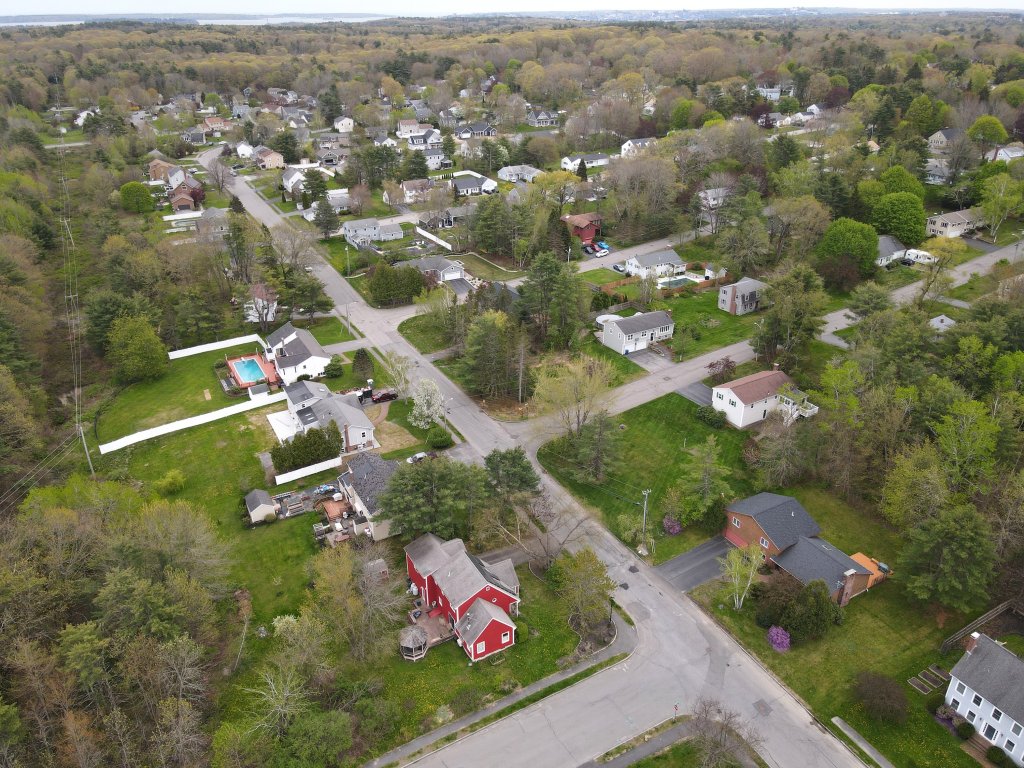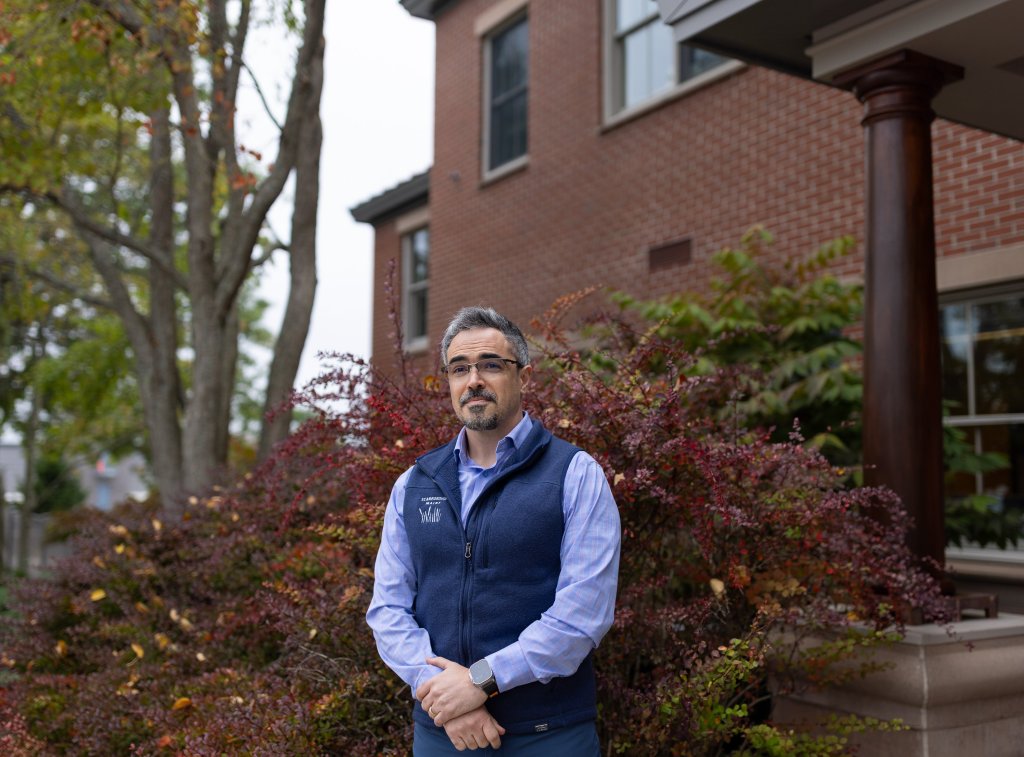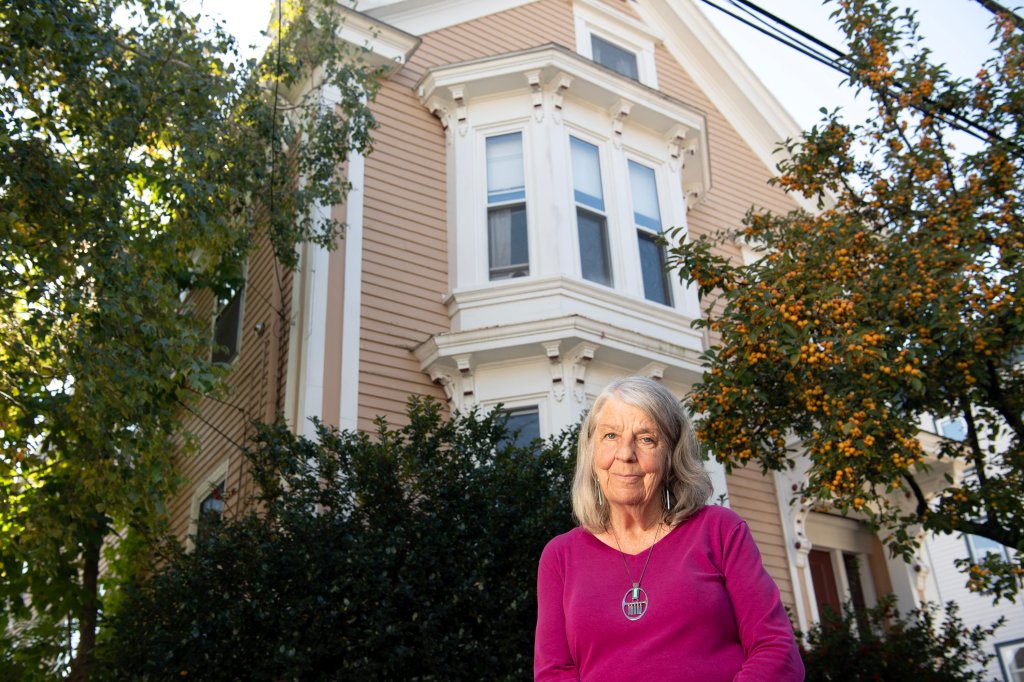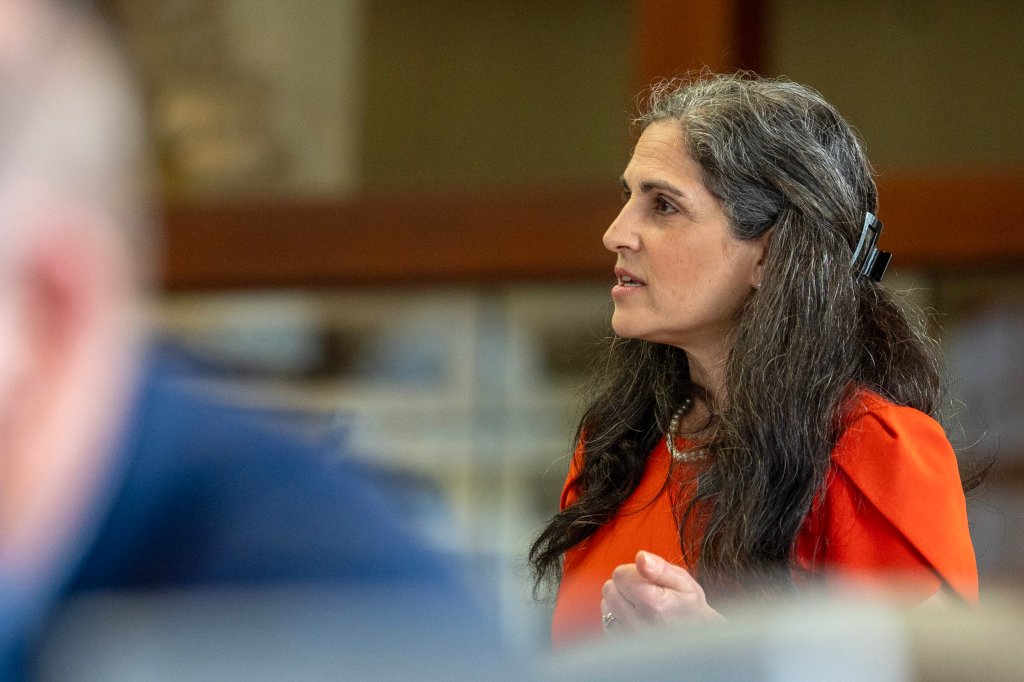
From the rocky coast to the western mountains to the unorganized northern territories, the story is the same: soaring property taxes in Maine are straining household budgets and increasing anxiety, particularly among low-income families and seniors on fixed incomes.
Pandemic-era spikes in residential property values, years of staggering inflation and recent community-wide revaluations have conspired to drive up property tax burdens and increase pressure on policymakers to find ways to keep people in their homes.
The Legislature responded this year by unanimously creating an emergency Property Tax Relief Task Force, a group that will meet over the next 12 months or so to study the issue and make recommendations for possible solutions.
Answers will not be easy, or quick.
“There’s only a limited amount the state can do to contain it, if it’s not going to be telling towns what to do,” said task force member Dick Woodbury, an economist and former independent state lawmaker from Yarmouth. “And it’s not clear that people in their own communities want to be told what to do, so it does make the whole thing pretty tricky.”
Property taxes are a perennial concern for local and state officials. Over the years, efforts have been made to reduce the burden by providing direct assistance to property owners and municipalities, while also controlling local spending.
Some of those were quickly undone, though, and residents continue to feel squeezed.

“It’s depressing,” Carol Carothers, 72, said about the taxes on her lakeside home in Belgrade. “When my property taxes go up to $10,000, that’s almost a third of my income. It’s impossible. It’s like having a mortgage that you can never pay off and it gets bigger every year.”
Maine has long been described as being among the most taxed states, and property taxes play a big role in that. But it’s not the only state confronting the problem. Lawmakers across the country are being pressured by local residents to find solutions.
Seven states have had citizen referendums on property tax issues within the last couple of years, including North Dakota, which voted down a proposal to eliminate them all together, according to the National Conference of State Legislatures. A similar effort in Nebraska failed to make the ballot last year, and Florida Gov. Ron DeSantis is considering a plan to end or drastically cut them in the Sunshine State.
“We are in sort of a property tax revolt at the moment,” said Manish Bhatt, senior policy analyst for the Tax Foundation, a nonprofit, nonpartisan think tank focusing on tax fairness. “Unfortunately, there’s not a state I can point to that is currently pursuing sound reform.”
That revolt has manifested here through school budget referendums, one of the few ways residents can have a direct say on property taxes.
Residents in at least a dozen districts, from Madawaska to Kennebunk, rejected budgets this year, The Maine Monitor reported this summer. And concerns over school spending, the biggest cost driver in smaller communities, show no signs of abating anytime soon.
The newly assembled task force is expected to issue an interim report by January and a final report in December 2026. Potential solutions range from increasing direct aid to certain property owners to recommending potential changes to the state constitution.
BURDEN SHIFTS TO RESIDENTS
Many of the forces driving property taxes are out of the state’s control. They are primarily determined by municipal, school and county budgets, all of which are struggling with inflation. Those spending decisions then determine how much money needs to be raised from property owners, and the amount paid is tied directly to property values, which are set by the real estate market.
The state constitution says municipalities must revaluate properties at least every decade to ensure fairness, and the state has rules to discourage towns from allowing their valuations to drop below 70% of market value. The constitution also requires residential and commercial properties to be taxed at the same rate.

Scarborough Tax Assessor Nicholas Cloutier, who also serves on the task force, said the overall tax burden has shifted to residents in recent years because commercial property values dropped significantly during the pandemic and have since increased at a slower rate.
The growth of both commercial and residential values had slowed heading into the pandemic. But residential growth went from 2% in 2020 to roughly 7% in 2023, while commercial growth went from flat to negative 4% in 2021 before climbing just over 2%, state data shows.
That resulted in a shift toward residents, who paid about 78% of the property burden statewide in 2023, up from 75% in 2020, the state said.
“The costs are increasing at a higher rate than people’s incomes, specifically fixed-income seniors, which Maine has a high percentage of,” Cloutier said.
Home values have skyrocketed in Maine since the pandemic, driven partly by the acceptance of remote work. As companies changed policies, employees have opted to move here from larger cities and continue working their high-paying jobs. That has driven up home prices as more people — with deeper pockets — have competed for a limited number of homes.
Maine’s status as “vacationland” also contributes. About 14% of the housing stock is vacant part of the year, the highest rate of housing being used as vacation rentals and second homes, according to 2024 census data provided to the task force.
Lawmakers have tried unsuccessfully in recent years to tax those properties differently. A proposal in 2021 faced opposition from real estate agents and tourism officials. Rhode Island, however, recently added a tax on non-owner-occupied properties assessed at $1 million or more.
All of these factors have contributed to Maine ranking as the eighth-highest state in the country for per capita collections of state and local property taxes. Maine’s tax burden is $2,565 per capita, compared with $1,949 nationally, according to the Tax Foundation.
‘NOT SUSTAINABLE’
Property tax increases have been highest on waterfront properties, reaching the edges of the state’s thousands of lakes and ponds, including the unorganized territories.
But metro areas are feeling it, too. Portland recently finalized its second revaluation in about five years, speeding up the timeline in an effort to keep increases more predictable.
Diane Hudson, a freelance photographer who has lived on Munjoy Hill for about 25 years, said the property tax bill for her three-unit building increased by about 32%, or more than $3,000, this year.
“It was a shock,” said Hudson, 79. “I haven’t been able to sleep because I really don’t want to ask my tenants to pay more money, but I may have to.”

Hudson considers herself lucky. She knows other older adults on the hill who are being forced to move, including a woman in her 80s whose landlord is selling the building, and others who don’t know how long they can remain in the community.
Similar scenarios are playing out elsewhere.
Carothers in Belgrade met with a real estate agent about selling her third-generation lakeside home after her property doubled in value in recent years, increasing her tax bill by more than $1,000.
“I’m going to hold on as long as I can,” she said, although she expects similar increases in the future now that the town has decided to borrow money to build a new fire station. “This is not sustainable for me.”
A 69-year-old Rockland resident, who asked not to be named because she has been targeted in the past, said she “about had a heart attack” when she opened her property tax bill, which jumped by 53% following the town’s revaluation.

Coming up with an additional $1,700 a year will be difficult on a fixed income, she said.
“I had intended to age in place, but I don’t know if I will be able to do that anymore,” the woman said.
Rep. Elizabeth Caruso, R-Caratunk, recently held a community meeting in Rockwood, a small village on the western edge of Moosehead Lake, for residents in unorganized territories, some of whom saw their lakeside property values triple during a recent revaluation.
About 60 people showed up.
“The majority were older Mainers, on fixed income or Social Security and saw this drastic increase as a tragic blow,” Caruso said. “Many testified that the land had been in their family for decades, and they have no desire to sell it, but may be forced to just to pay the property taxes. Others said they would need to take out a loan to pay their taxes.”
WHAT’S BEEN DONE ALREADY
Lawmakers have already tried several solutions.
They created a senior property tax stabilization program in 2022 that allowed older adults to freeze their property tax bills, but state and local officials quickly determined that program was not sustainable and ended it the following year.
Instead, they expanded eligibility and benefits for the Property Tax Fairness Credit, which allows income-eligible residents to receive a rebate on a portion of their property taxes. That change increased costs from $77.8 million in fiscal 2024 to more than $110 million last year. The current budget includes an additional $2.7 million a year.
Other examples of property tax relief include:
- More than doubling direct property tax relief since 2019, from $92 million to about $215 million a year in the current budget.
- Increased revenue for towns and schools by 50%, from nearly $1.2 billion to nearly $1.8 billion a year. The state describes this as indirect assistance, since the additional revenue should theoretically reduce the amount needed to be raised by property taxes.
- Offering a tax deferral program as a last resort for older adults. That program allows income-eligible Mainers to have their property taxes paid by the state, which then recoups the cost when the property is sold or becomes part of an estate.
The current budget also includes about $91.8 million a year in tax credits for business.
Even with all this, the tax burden on residents has grown.
“We have been taking this seriously but we have seen it is not enough for many of our neighbors, so we have to go beyond just those tried-and-true programs to see if there are additional efforts that make sense,” said Sen. Nicole Grohoski, D-Ellsworth, who co-chairs the task force.
Task force members say they’re planning to look at a variety of solutions, including expanding existing direct relief programs and better targeting them to year-round residents, allowing municipalities to adopt local option taxes and other fees, and possible changes to the constitution that would allow for residential and commercial properties to be taxed at different rates.

Each of those solutions presents its own set of challenges.
Direct relief to residents costs money, requiring either higher state taxes or spending cuts. Increasing revenue to municipalities and schools also comes with a cost, and state lawmakers may find it difficult to ensure that funding is used to lower property taxes. The state constitution has strong home rule provisions that allow cities and towns to enact their own laws as long as they don’t conflict with state laws, and any changes to the state constitution require a two-thirds vote of the Legislature and approval at a statewide referendum.
Woodbury, the economist, said he hopes the task force focuses on direct relief for full-time residents, rather than providing more funding to municipalities or schools.
One way to do that, he said, is by expanding the Homestead Tax Exemption, which allows permanent residents who have lived in their home for at least a year to deduct $25,000 of value from their property taxes. The state repays municipalities 76% of the costs.
As state revenues begin to flatten, any additional direct property tax relief for residents may come at the expense of business incentives — or through additional local option taxes and fees.
“If one wanted to keep the whole statewide spending pie the same,” Woodbury said, “it would just cut back on the other programs that provide relief.”

We invite you to add your comments. We encourage a thoughtful exchange of ideas and information on this website. By joining the conversation, you are agreeing to our commenting policy and terms of use. More information is found on our FAQs. You can modify your screen name here.
Comments are managed by our staff during regular business hours Monday through Friday as well as limited hours on Saturday and Sunday. Comments held for moderation outside of those hours may take longer to approve.
Join the Conversation
Please sign into your CentralMaine.com account to participate in conversations below. If you do not have an account, you can register or subscribe. Questions? Please see our FAQs.